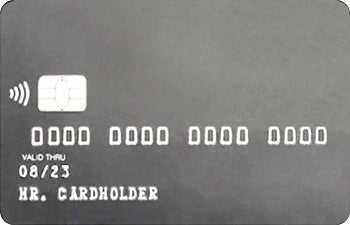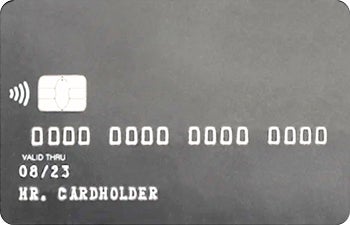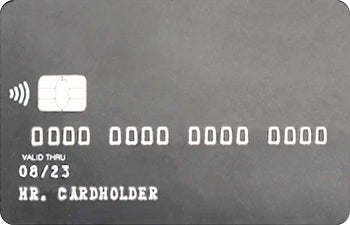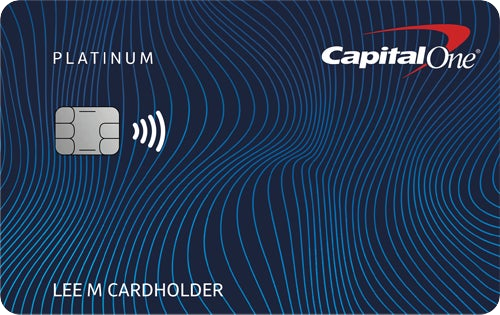Approximately 55% of 18- to 29-year-olds have at least one credit card, according to a 2021 credit card features survey by CNET’s sister site, Bankrate. Those numbers are up from 2016, when only 33% of 18- to 29-year-olds had a credit card.
Despite this slight increase, millennials and Gen Zers aren’t rushing to get credit cards. And the fact that credit cards can be hard to qualify for without an established credit score may have something to do with it.
That’s why a starter credit card is a good place to start. Even if you’re already building credit in other areas of life, a starter credit card can help you build responsible financial habits along the way.
Here’s more about starter credit cards and our recommendations for choosing the right one.
The Discover it® Secured Credit Card* is a valuable option if you have no credit or a limited credit history. It’s a secured credit card, meaning you must pay an initial deposit to secure a line of credit (equal to your initial deposit). However, this is a rare secured credit card that offers rewards. You earn 2% cash back at gas stations and restaurants (on up to $1,000 in combined purchases each quarter, then 1%). And similar to the other cards in Discover’s portfolio, Discover will match all the cash back you earn at the end of your first year as an account holder.
For more details, check out our full review of the Discover it Secured Credit Card.
- Intro Balance Transfer APR
- 10.99% for 6 months
- Intro Purchase APR
- N/A
- Regular APR
- 28.24% Variable APR
- Balance Transfer Fee
- 3% intro balance transfer fee, up to 5% fee on future balance transfers (see terms)*
The Discover it® Secured Credit Card* is a valuable option if you have no credit or a limited credit history. It’s a secured credit card, meaning you must pay an initial deposit to secure a line of credit (equal to your initial deposit). However, this is a rare secured credit card that offers rewards. You earn 2% cash back at gas stations and restaurants (on up to $1,000 in combined purchases each quarter, then 1%). And similar to the other cards in Discover’s portfolio, Discover will match all the cash back you earn at the end of your first year as an account holder.
For more details, check out our full review of the Discover it Secured Credit Card.
- Intro Balance Transfer APR
- 10.99% for 6 months
- Intro Purchase APR
- N/A
- Regular APR
- 28.24% Variable APR
- Balance Transfer Fee
- 3% intro balance transfer fee, up to 5% fee on future balance transfers (see terms)*
The Discover it® Student Cash Back* is a solid option for students looking to build credit and earn rewards with a starter credit card. It doesn’t have an annual fee, foreign transaction fees or penalty APR. Plus we like that you don’t need an established credit history to apply.
You earn 5% cash back on quarterly rotating rewards categories on up to $1,500 in combined purchases per quarter, then 1%. Keep in mind, you need to manually activate your categories each quarter to earn the higher cash-back rate to earn the boosted rewards. This Discover credit card also qualifies for unlimited Cashback Match™ to match all of the cash back you earn within the first year at the end of your first year.
For more details, check out our full review of the Discover it Student Cash Back.
- Intro Balance Transfer APR
- 10.99% for 6 months
- Intro Purchase APR
- 0% for 6 months
- Regular APR
- 18.24% – 27.24% Variable APR
- Balance Transfer Fee
- 3% intro balance transfer fee, up to 5% fee on future balance transfers (see terms)*
The Discover it® Student Cash Back* is a solid option for students looking to build credit and earn rewards with a starter credit card. It doesn’t have an annual fee, foreign transaction fees or penalty APR. Plus we like that you don’t need an established credit history to apply.
You earn 5% cash back on quarterly rotating rewards categories on up to $1,500 in combined purchases per quarter, then 1%. Keep in mind, you need to manually activate your categories each quarter to earn the higher cash-back rate to earn the boosted rewards. This Discover credit card also qualifies for unlimited Cashback Match™ to match all of the cash back you earn within the first year at the end of your first year.
For more details, check out our full review of the Discover it Student Cash Back.
- Intro Balance Transfer APR
- 10.99% for 6 months
- Intro Purchase APR
- 0% for 6 months
- Regular APR
- 18.24% – 27.24% Variable APR
- Balance Transfer Fee
- 3% intro balance transfer fee, up to 5% fee on future balance transfers (see terms)*
The Discover it® Student Chrome* is similar to the Discover it Student Cash Back card, but the Discover it Student Chrome offers a different rewards rate. You earn 2% cash back at gas stations and restaurants on up to $1,000 in combined quarterly purchases, then 1%. And with Discover’s Cashback Match™ program, every dollar you earn in cash back your first year will be matched at the end of your first year. There’s no annual fee, but after the first late payment there’s an up to $41 late payment fee.
For more details, check out our full review of the best student credit cards.
- Intro Balance Transfer APR
- 10.99% for 6 months
- Intro Purchase APR
- 0% for 6 months
- Regular APR
- 18.24% – 27.24% Variable APR
- Balance Transfer Fee
- 3% intro balance transfer fee, up to 5% fee on future balance transfers (see terms)*
The Discover it® Student Chrome* is similar to the Discover it Student Cash Back card, but the Discover it Student Chrome offers a different rewards rate. You earn 2% cash back at gas stations and restaurants on up to $1,000 in combined quarterly purchases, then 1%. And with Discover’s Cashback Match™ program, every dollar you earn in cash back your first year will be matched at the end of your first year. There’s no annual fee, but after the first late payment there’s an up to $41 late payment fee.
For more details, check out our full review of the best student credit cards.
- Intro Balance Transfer APR
- 10.99% for 6 months
- Intro Purchase APR
- 0% for 6 months
- Regular APR
- 18.24% – 27.24% Variable APR
- Balance Transfer Fee
- 3% intro balance transfer fee, up to 5% fee on future balance transfers (see terms)*
The Capital One Platinum Secured Credit Card* requires a deposit to secure a line of credit -- either $49, $99 or $200 to open your account with an initial credit line of $200. The maximum limit is $1,000. This secured card doesn’t offer any rewards, but it doesn’t have an annual fee or foreign transaction fees. We like that if you use your card responsibly, Capital One will consider refunding your security deposit and upgrading you to an unsecured Platinum card. And you’ll automatically be considered for a credit line increase in as little as six months.
For more details, check out our full review of the Capital One Platinum Secured Credit Card.
- Intro Balance Transfer APR
- N/A
- Intro Purchase APR
- N/A
- Regular APR
- 29.99% (Variable)
- Balance Transfer Fee
- $0 at the Transfer APR, 4% of the amount of each transferred balance that posts to your account at a promotional APR that Capital One may offer to you
The Capital One Platinum Secured Credit Card* requires a deposit to secure a line of credit -- either $49, $99 or $200 to open your account with an initial credit line of $200. The maximum limit is $1,000. This secured card doesn’t offer any rewards, but it doesn’t have an annual fee or foreign transaction fees. We like that if you use your card responsibly, Capital One will consider refunding your security deposit and upgrading you to an unsecured Platinum card. And you’ll automatically be considered for a credit line increase in as little as six months.
For more details, check out our full review of the Capital One Platinum Secured Credit Card.
- Intro Balance Transfer APR
- N/A
- Intro Purchase APR
- N/A
- Regular APR
- 29.99% (Variable)
- Balance Transfer Fee
- $0 at the Transfer APR, 4% of the amount of each transferred balance that posts to your account at a promotional APR that Capital One may offer to you
Petal® 2 “Cash Back, No Fees” Visa® Credit Card
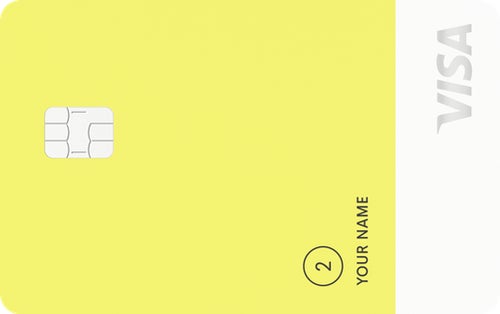
The credit-building Petal® 2 “Cash Back, No Fees” Visa® Credit Card, issued by WebBank, is a solid no-annual-fee credit card that offers cash back opportunities and no initial security deposit. Credit cards designed for people with limited or no credit generally don’t offer rewards. However, as long as you make payments in full and on time with the Petal 2 “Cash, Back, No Fees” Visa every month, you can earn 1% on all eligible purchases (and an additional 0.5% cash back after you make 12 consecutive on-time monthly payments). And Petal may use its Cash Score to weigh several financial factors to determine approval -- which can better your chances of approval.
However, Petal recently downgraded some existing members who acquired Petal 2 cards prior to May 16, 2023. Petal 2 users who received this unexpected news were downgraded to a version of the Petal 1 Rise with a $96 annual fee. As of now, the no-annual-fee Petal 2 is still available to new applicants and is still a solid credit-building option. But we recommend carefully weighing your options before applying for the Petal 2 since Petal has abruptly changed its terms twice in the last few months -- some Petal® 1 “No Annual Fee” Visa® Credit Card users were also downgraded in May.
For more details, check out our full review of the Petal 2 “Cash Back, No Fees” Visa Credit Card.
- Intro Balance Transfer APR
- N/A
- Intro Purchase APR
- N/A
- Regular APR
- 18.24% – 32.24% (Variable)
- Balance Transfer Fee
- N/A
The credit-building Petal® 2 “Cash Back, No Fees” Visa® Credit Card, issued by WebBank, is a solid no-annual-fee credit card that offers cash back opportunities and no initial security deposit. Credit cards designed for people with limited or no credit generally don’t offer rewards. However, as long as you make payments in full and on time with the Petal 2 “Cash, Back, No Fees” Visa every month, you can earn 1% on all eligible purchases (and an additional 0.5% cash back after you make 12 consecutive on-time monthly payments). And Petal may use its Cash Score to weigh several financial factors to determine approval -- which can better your chances of approval.
However, Petal recently downgraded some existing members who acquired Petal 2 cards prior to May 16, 2023. Petal 2 users who received this unexpected news were downgraded to a version of the Petal 1 Rise with a $96 annual fee. As of now, the no-annual-fee Petal 2 is still available to new applicants and is still a solid credit-building option. But we recommend carefully weighing your options before applying for the Petal 2 since Petal has abruptly changed its terms twice in the last few months -- some Petal® 1 “No Annual Fee” Visa® Credit Card users were also downgraded in May.
For more details, check out our full review of the Petal 2 “Cash Back, No Fees” Visa Credit Card.
- Intro Balance Transfer APR
- N/A
- Intro Purchase APR
- N/A
- Regular APR
- 18.24% – 32.24% (Variable)
- Balance Transfer Fee
- N/A
What is a starter credit card?
Starter credit cards are designed to help people with little to no credit access a line of credit to build responsible money habits. However, starter cards are different from subprime cards, which have higher rates and fees and are designed for those who’ve had serious credit problems.
Cards for credit newcomers typically offer a barebones rewards structure (if any) and less competitive terms compared to cards for those who’ve already established good or excellent credit. But using a starter card can help you prioritize practicing healthy financial habits and take the focus away from meeting a welcome bonus or earning cash back on purchases that aren’t necessarily urgent.
A healthy credit score makes it easier to qualify for loans and some of the best credit cards with more desirable rates and benefits. Getting to that point is something of a Catch-22 because you typically need a credit history to qualify for most credit cards. And that’s where starter credit cards come into play.
Types of starter credit cards
Starter credit cards include secured credit cards, student credit cards and unsecured credit cards (specifically for bad or no credit). These cards can all help you build credit as long as you practice good credit habits like paying your bill off in full and on time each month. Here’s a rundown of the three types of starter credit cards.
Secured credit cards
Secured credit cards offer a line of credit in exchange for a security deposit that often serves as your credit line. For example, if you deposit $500, your credit limit is likely equal to $500.
Secured credit cards have the least stringent credit requirements, making them a good option if you’re new to credit or need to rebuild your credit. And all of the secured cards on this list report your credit activity to the three major credit bureaus -- Experian, TransUnion and Equifax -- so your credit score can grow with responsible use. The secured credit card issuer may even upgrade you to an unsecured card automatically if you practice good credit habits over time.
Unsecured credit cards for bad or no credit
An unsecured or traditional credit card doesn’t require a security deposit to get started -- but it may have stricter credit requirements than secured cards. But here are a few credit cards designed for no credit that don’t require a security deposit.
Some of these options even offer rewards and a few perks -- depending on the card. However, these cards generally have high interest rates and steep fees, such as penalty APRs and late-payment fees. But as long as you pay your balance in full each month, you don’t have to worry about these drawbacks.
Student credit cards
If you’re starting to build credit in college, you can do that with a student credit card. Most student cards don’t require a security deposit or an annual fee, making them slightly more affordable options.
Many also offer ongoing rewards on everyday purchases -- such as gas and groceries. Student credit cards are generally easier to qualify for than premium travel credit cards or standard rewards cards, and many issuers don’t even require a credit score to apply.
How to choose a starter credit card
There are plenty of starter credit card options to choose from. Here are a few questions to ask yourself to help narrow down the right one:
- Is a security deposit required?
- Is there an annual fee?
- What’s the penalty APR or late fees?
- Does it report to all three credit bureaus?
- Are there ongoing rewards, or is there a chance to upgrade a rewards credit card later?
Take time to research the best starter credit cards that complement your spending. “It’s important to choose the right kind of card for your needs,” credit expert Jason Steele said.
“Student cards and other simple, unsecured cards are ideal for those who are new to credit. On the other hand, secured cards and subprime cards are best for those who have had serious credit problems.”
How to apply for a credit card without a credit history
Getting a credit card without a credit history can be challenging, but that’s where starter credit cards come in handy. Most starter credit cards won’t even require a credit score to apply. Once you choose a credit card that meets your needs, here are some steps you can take to apply:
- Apply for the card following one of the secure links above.
- Fill out the application with the necessary personal information, such as your name, Social Security number, date of birth and physical address.
- If you’re applying for a secured credit card, you’ll need to make a deposit upon approval.
- Once you’re approved for your new starter card, remember to pay your bills on time and in full to avoid interest charges. Also, avoid taking on any new debt that can offset your credit-building efforts.
How to build credit with a starter credit card
- Pay your balance on time (and in full). The best thing you can do for your credit score is pay your account balance on time and in full monthly. Payment history makes up 30% of your FICO credit score, and late payments can have a major impact on your credit score.
- Maintain a low credit utilization. Your credit utilization -- how much credit you have compared with your total debt -- needs to be kept as low as possible to help maintain a healthy credit score. When your credit utilization is high, that signals you have difficulty paying off your credit card balance. Most experts recommend keeping your utilization at 30% or below. So, if your credit card limit is $1,000, that means keeping your balance at or below $300. Your credit score can still take a hit if you have a high credit utilization ratio at any point in your billing cycle, even if you plan to pay off your balance in full by its due date.
- Only charge what you can pay back in full (and on time). Aim to treat your starter credit card like you would a checking account or cash. If you can’t pay for something with liquid cash at any given moment, you shouldn’t make the purchase. The last thing you want to do is end up with a credit card bill you can’t pay in full at the end of the month.
“It can take time to establish a credit history and boost your credit score when you’re just starting out,” said credit card expert Julia Menez.
“Typically, it will take at least six months of regular credit card usage and on-time payments to establish a good credit history. Depending on your starting point, it might even take up to a year or longer to improve your credit score and qualify for higher rewards cards in the future.”
Alternatives to help build your credit
Credit cards are one of the quickest ways to establish a credit score (or a credit boost) with responsible credit use. But there are alternatives to consider. Here are a few ways you can build credit without a credit card:
- Become an authorized user. If you don’t want to get a starter credit card, consider being an authorized user on someone else’s credit card account -- such as a parent. As an authorized user, the primary account holder is responsible for making on-time payments on the account. As long as the account is in good standing, you can positively impact your credit score as an authorized user.
- Pay back an existing loan. If you have an existing loan, such as a student loan or car loan, you can positively impact your credit score by making on-time payments.
- Apply for a credit builder loan. Credit builder loans offer a way to build credit without a credit card, but they don’t work like your everyday loan. You work to pay off the loan in full, in monthly installments, before your lender extends access to the funds. Each monthly payment counts toward the total loan amount but is also reported to the credit bureaus. You don’t need a credit score or a co-signer to qualify for a credit builder loan, but you’ll need proof of income. We also recommend shopping around before applying for a credit builder loan -- they typically charge interest, so it’s important to secure the lowest interest rate.
FAQs
You can get a credit card without a credit history, but your options are limited. If you’re in college, you may qualify for a student credit card. Otherwise, you can try for a secured credit card, which requires a deposit in exchange for a line of credit. After you establish good credit with your first credit card, you may qualify for a rewards credit card that usually requires a higher credit score and solid credit history.
When you get your first credit card, it generally takes at least six months to generate a FICO score, according to Experian. However, VantageScore sometimes generates a score after the first billing cycle.
Secured credit cards and student loans typically don’t require a credit score to apply, but every card issuer has different standards. As long as you’re old enough to apply for a credit card and have a steady flow of income, you don’t need much else to improve your odds for a starter credit card.
If you have a positive credit history, such as a student or car loan you consistently pay on time, you may qualify for a traditional starter credit card without jumping through these hoops.
Secured credit cards are the easiest to get approved for because you have to pay a security deposit to secure a line of credit and sometimes a credit check isn’t required.
The most important thing that you can do is to make all of your loan payments on time and avoid debt.
Other factors can include having an established business relationship with the card issuer. If you apply for a credit card with a bank or credit union that you already have an account with, it can help.
Also, make sure that the card you apply for is designed for customers with your credit profile. For example, people who have had significant credit problems won’t be approved for a premium rewards card.
*All information about the Discover it Secured Credit Card, Discover it Student Cash Back, Discover it Student Chrome and the Capital One Platinum Secured Credit Card has been collected independently by CNET and has not been reviewed by the issuer.
The editorial content on this page is based solely on objective, independent assessments by our writers and is not influenced by advertising or partnerships. It has not been provided or commissioned by any third party. However, we may receive compensation when you click on links to products or services offered by our partners.




